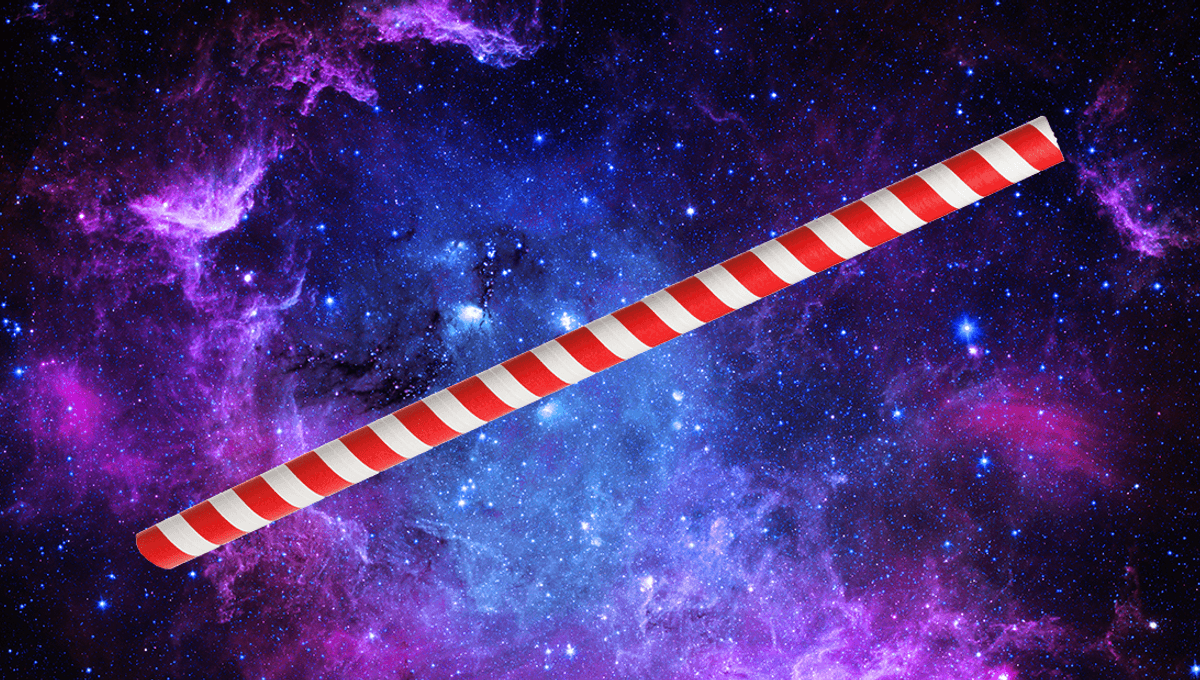
Say you find yourself alone in space, on a spacewalk to repair damage to your space station. You are hit by some stray space debris, and slowly the air drains out of your pressurized suit from a puncture. You only have a few seconds to get back inside before you become one of the very few people who have ever died in space. You realize you are too far and look to your only solace: a flask of juice you have in your pocket, which you can reach with a straw that has floated up to your mouth.
Right, now we have some bad news: you cannot drink liquids through a straw in space. While you die, juiceless, let us explain.
When you use a straw, you aren’t really sucking up the liquid. What you are doing is sucking the air out of the straw, creating a vacuum or a decrease in air pressure inside of the straw. The atmospheric pressure outside of your drink forces the liquid into the straw and up into your mouth.
When you are in the vacuum of space, the pressure is extremely low, and no force is exerted on the liquid to push it up the straw. Inside the space station, there is an artificial atmosphere kept at the same pressure as at sea level. This pressure is enough to make straws function as normal, though you may have to drink it from a floating blob.
Unfortunately, outside the pressure of your ship and suit, you can no longer drink through straws. Much worse, the pressure around you would now be so low that the boiling point of the fluids inside your body decreases to below that of your body temperature, and gas bubbles will begin to form inside you.
“Some degree of consciousness will probably be retained for 9 to 11 seconds. In rapid sequence thereafter, paralysis will be followed by generalized convulsions and paralysis once again,” NASA’s Bioastronautics Data Book explains.
“During this time, water vapor will form rapidly in the soft tissues and somewhat less rapidly in the venous blood. This evolution of water vapor will cause marked swelling of the body to perhaps twice its normal volume unless it is restrained by a pressure suit.”
Your blood would stop circulating, while gas and water vapor would flow slowly out of your airways, and the resulting moisture evaporation would cause your mouth and nose to freeze slightly before the rest of you.
So you probably have bigger worries on your mind than “Can I use a straw?”
All “explainer” articles are confirmed by fact checkers to be correct at time of publishing. Text, images, and links may be edited, removed, or added to at a later date to keep information current.
Source Link: Why You Can't Use A Drinking Straw In Space